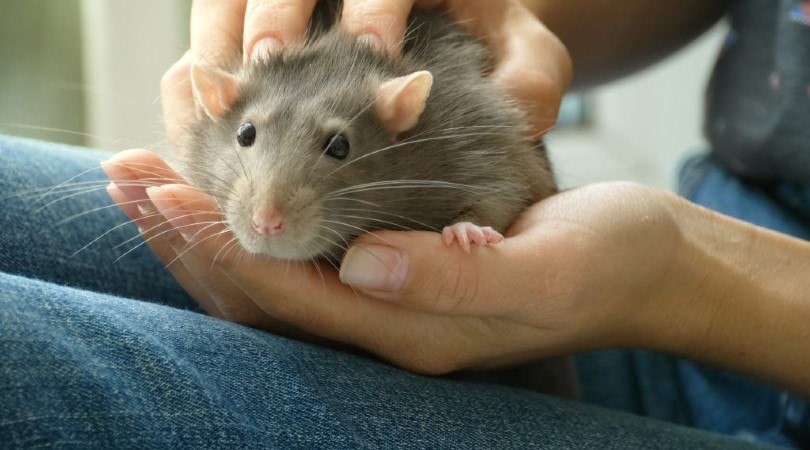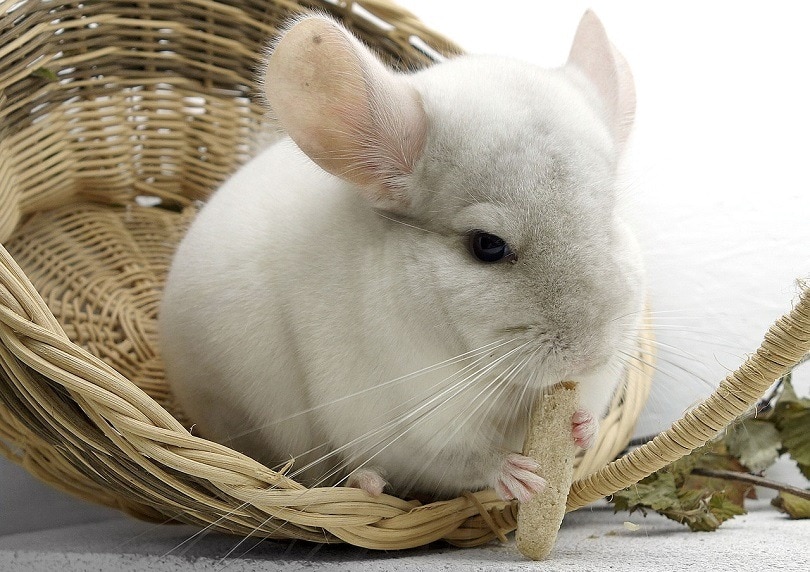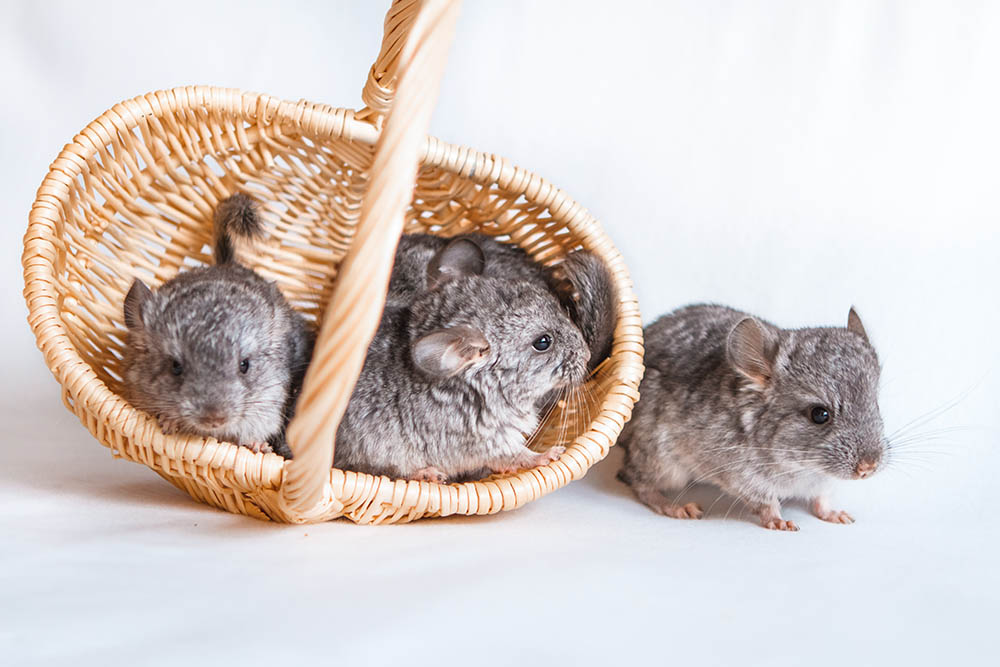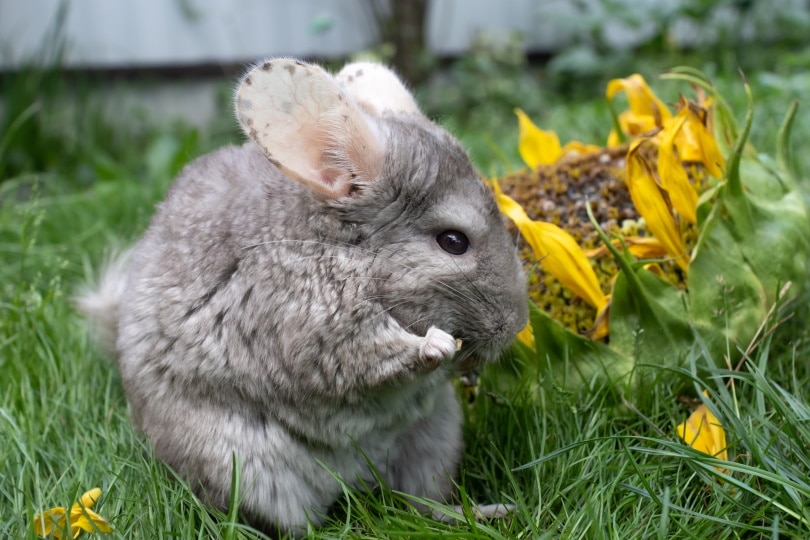
Click to Skip Ahead
Rats can be friendly, engaging pets to own. They do not take up as much time or space as cats and dogs typically do, but they can be just as loving, if not more so.
However, the way that you interact with your rat can affect the bond that you can form. You cannot expect to simply own one of these furry critters and have a friend for the rest of their life. Keep reading to learn how to bond with your rat, starting with adopting the right one!

Before You Adopt a Rat
It is best to start on the right foot, which means you should try to not purchase a rat from a pet store. The reason is that it is likely that from the moment they were born, they were not handled until you adopted them, except for cage cleanings.
It is best to purchase a rat from a high-quality breeder because they are more likely to have been handled and be friendly. Most breeders will purposefully breed rats from lines that are known to be both outgoing and docile. These rats are much more likely to be social. You can also purchase rats from a rescue shelter or adopt them from someone who has a viable reason for rehoming. They could be relocating or unable to care for them due to health or other reasons.
Once you have adopted a rat, it is time to put in the hard work to nurture a good relationship with them. Taking the time each day to do bonding exercises with your rat is essential. You need to go slowly and be consistent, though. Don’t take several days off and come back expecting to pick up right where you left off. Instead, you’ll need to work with them a little every day to establish a healthy bond.

The 8 Ways to Bond With Your Rat
1. Place Their Cage in a Quiet but Social Location
The first way to begin bonding with your rat is by placing their cage in a safe and quiet location that you spend a great deal of time in. Your rat needs to get accustomed to your scent and to being in a new environment.
Rats are adventurous but shy for self-preservation. Placing them in a communal area is a good way to get them used to your presence and to know that you are calm and safe.
While they are in this area, you can try to vocally and physically acknowledge them. Do not try to pick them up right away. They need time to get used to a new area. However, whenever you are around, try coming closer to the cage and talking with them. Allow them to smell you.
If you have any other pets, it is best to keep them away from each other for a while. Rats have an incredibly keen sense of smell. Smelling other animals of almost any kind will set off major alarm bells for them.
2. Handle Them

Once you believe that they are no longer afraid of your presence, you can try handling them. If you adopted rats from a high-quality breeder or a rehoming project, it is more likely that the rat will already be used to being handled.
Go slowly the first time that you handle your new rat. Pick them up firmly but gently once they have smelled you, and give them a few strokes, holding them close. You do not have to do this for long, especially since the rat will be ready to explore more of their new space.
Doing this every day, even for short periods, is essential to building up a routine and making handling a normal thing.
3. Care for Them Properly
Although your rat won’t recognize this directly, giving them the care that they need is one of the best ways to bond with them. If they are hungry, dirty, or thirsty, they will be less accepting of anything new coming their way.
Rats need plenty of room to move around in their enclosures. Although they should get time each day to be out and explore, they will spend most of their lives within the cage. A good rule of thumb is that each rat you have needs at least 2 cubic feet of space inside the cage. The bigger and more decorated the cage, the better it will be.
Stereotypically, rats have a reputation for being dirty, disease-carrying creatures. However, this couldn’t be further from the truth. They need an immaculate space to live in, and they will not tolerate a dirty cage for long. If you can smell your rat or their excrement, the time to clean out their cage and bedding is overdue. Try to work out the timing. They need a daily scoop out and a quick wipe of their cage every day and a thorough cleaning at least once a month.
Also, ensure that you feed them a regular and varied diet, with water always available. Rats are quite good at moderating themselves, but they should still be monitored. If you have more than one rat, always give them the same amount and type of food, or food aggression can arise.
4. Reward Them With Treats

Rats are extremely food motivated. They quickly figure out what flavors they love and what flavors are only so-so. Although you don’t want your entire bond to be based on food, it can be good to give them treats now and then. However, don’t allow it to get to the point where your rat expects a treat every time they see you, or they won’t be excited about you, only the food.
Moderation is not only crucial for your bond with your rat but also for their diet. Give them healthy treats, like shelled nuts, raisins, or sunflower seeds. These are high in fat and oil levels, but they have plenty of vitamins and nutrients.
You can also make them work for these treats, burying them in their bedding or hiding them in your pockets, so they have to forage for them.
5. Play With Them
Once your rat has become comfortable being handled daily, you can start to integrate more play-like behavior into your daily routine.
Teach them games so they are still interacting with you when they are out of their cage and exploring. You can finger wrestle with them without having to teach them anything.
Cat wands aren’t only suitable for cats. Rats will often be fascinated with anything feathery or shiny that moves. Make sure it is a new toy, though, since the smell of a cat on it will frighten your rat.
You can also teach them games, such as tug-of-war or even hide-and-seek by rewarding them with a treat each time they find you or a particular object.
6. Allow Them to Explore

When they are outside of their cage, it doesn’t always have to be about you. Allow them to scamper around and explore. Always monitor them to ensure that they don’t get into places that could endanger them, like behind a TV.
Interact with them outside the consistent areas that you handle them in so they can get used to seeing you around everywhere they go. You can even allow them to roam free while you are at home, talking to them while doing chores.
7. Wear Them Around

It might sound odd, but wearing your rat is an excellent way to bond with them. Once they are tired out from their explorations or if you don’t have the time to monitor them, carry them with you! You can wear a dressing gown or bulky sweater where they can climb into a pocket or a sleeve. You can even stick them on your shoulder.
Putting them in a pocket or pouch close to your body is an excellent way to bond with your rat soon after adopting them. Shy rats will appreciate the ability to burrow away from the scary new world into a dark and enclosed space. These factors add up to safety for a rat.
Since they are so close to your body, they will begin to associate your smell with safety, becoming used to being around you and not feeling scared.
- Did it ever occur to you that: Can Rats Eat Pickles? What You Need to Know
8. Go to Their Level
Going down to their level is a great way to make yourself more approachable. Sitting on the floor makes you easier to access, and your rat will want to explore all over you. Just watch out if you have jewelry on, since they tend to be not-so-subtle thieves.
A rat is one of the most intelligent and friendly of the small mammals that you can own as pets. Setting aside time each day to interact with them and just hang out is essential to forming a good bond. With consistency, gentleness, and persistence, you are likely to find success quickly.
- What to read next: Can Rats Eat Walnuts? What You Need to Know

Conclusion
When it comes to establishing a good bond with your pet rat, you get out what you put in with these intelligent creatures. They are smart enough to understand your motivations, so if you approach them with love and care, they will gladly reciprocate. Even if your rat is one that doesn’t enjoy being handled, they will still like being around you and appreciate your company.
Featured Image Credit: Ezume Images, Shutterstock







